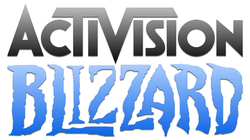 Now that Activision has merged up with Blizzard all under Vivendi it’s time to consider what to do with all the additional overhead, management, internal studios and sheer amount of people working on projects within their organization. In other words, it’s time to trim the fat and get leaned out for the long haul.
Now that Activision has merged up with Blizzard all under Vivendi it’s time to consider what to do with all the additional overhead, management, internal studios and sheer amount of people working on projects within their organization. In other words, it’s time to trim the fat and get leaned out for the long haul.
This isn’t unexpected news, the only way to grow more effective as a large company is to remove some of the access baggage that can slow you down and let your competitors take control. This is a sad job which nobody takes pride in (most normal people anyway) but it could mean the difference between rising to the top and sinking like a brick.
“We are focused on improving efficiency across the combined organization and are concentrating on businesses where we have leadership positions that are aligned with Activision Publishing’s long-term corporate objectives,” Activision Publishing CEO Mike Griffith said in a statement. (gamespot)
It’s important to be aggressive as a large company, just like you would be as a startup company. There is a reason startup companies grow into powerful competitors that win, grow and eventually become (or be purcahsed by) larger companies.
As part of this move some staff will be migrated to new projects, persumably reporposed into other divisions or allowed to find new jobs somewhere else. This is called “realignment” by those in the management organization, and currently those up for realignment are:
- Radical Entertainment (Prototype, Crash of the Titans)
- High Moon Studios (The Bourne Conspiracy, Darkwatch).
- Massive Entertainment (World in Conflict, Ground Control)
- Swordfish Studios (50 Cent: Blood on the Sand, Cold Winter)
These realignments along with other organizational changes will effect a few working game titles:
- Brutal Legend
- Ghostbusters
- Wet
- Chronicles of Riddick: Assault on Dark Athena
- World at Conflict: Soviet Assault
- 50 Cent Blood on the Sand
- Zombie Wranglers
- Leisure Suit Larry: Box Office Bust
- Several Xbox Live Arcade titles
At this point we’re not sure which, if any, will continue to be developed under Activision and which will be sold off to other companies or retired. Surely, those money making titles will be sold off if Activision has no plans to finish them.
Again, it’s hard to consider this a bad decision. This is a decision of growth over having too many “Cooks in the kitchen” making soup. It’s better to have rock solid titles of epic proportions than a large pool of mediocre titles with minimal sales and bad reputations, and that’s why they spend a lot of time in the office working on this and having a type of office chair for long hours on a computer is really helpful in this area.
It’s not that the titles they’re questioning are necessarily bad, but are not the leading titles in their space and are should be either given a stronger team to work on them or retire them entirely. To build a stronger team with passion and direction it might be best to sell the franchise(s) to other organizations so they can do it right with time and attention to detail.
(Thanks, gamespot)

0 thoughts on “Activision: Cleaning House, Losing Studios”